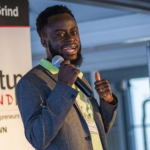Over the past four years, the use of financial services in Rwanda has shot up significantly. This is due to an uptick in informal saving groups and an increase in mobile money services. The FinScope 2020 survey sets the figure at 93% having access to formal financial services.
The survey was conducted by Access to Finance Rwanda (AFR) and gives a detailed breakdown in adoption as per district. In terms of gender, the results are fairly even as the gender gap in financial inclusion stands at 1% in favor of the men. It turns out that the youth within the 16-24 age group is the most financially excluded – 18% compared to the national average at 7%.
Impressive for an African country, the Rwandese population has access to both formal and informal financial services cutting across the Banking sector, mobile network operators, insurance firms, and SACCOs. Thus far 36% of the Rwanda population is included in the banking sector – an increase of 1.1 million people since 2016.

The country aspires to hit 100% financial inclusion by 2024. The FinScope report is done every 4 years and is relied upon as a source of credible information on the financial sector. The first report was done in 2008, and the subsequent reports have been relied upon as metrics to guide policy intervention within the Rwandan financial system.
In summary
- Mobile Money adoption is at 87% (6.2 million adults) of which females (84%) and men (90%).
- Formally served in Rwanda are at 77% (5.5 million adults) meaning they directly use formal financial banking services and other formal (non-bank) services such as insurance and mobile network products.
- Informally served is at 78% of adults covering about 5.6 million individuals, of which 80% of women belong to some form of a savings group.
- 36% of Rwandese are banked, just about 2.6 million individuals, and are actively using banking services.
- Insurance & risk mitigation is fairly low as only 17% of adults have insurance products. (the figure is 1.2 million and keeps growing at 0.5 million since 2016).
Rwanda is known for its technological edge in the Subsaharan region – an achievement arrived at through strategic investments. The country has consistently achieved 7% annual economic growth – one of the highest in the world. The World Bank 2018 Ease of doing business index set the country higher than EU giants Belgium, and Italy. Rwanda has of 12.95 million people in and poised to hit 20 million by 2024.




